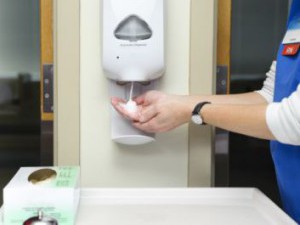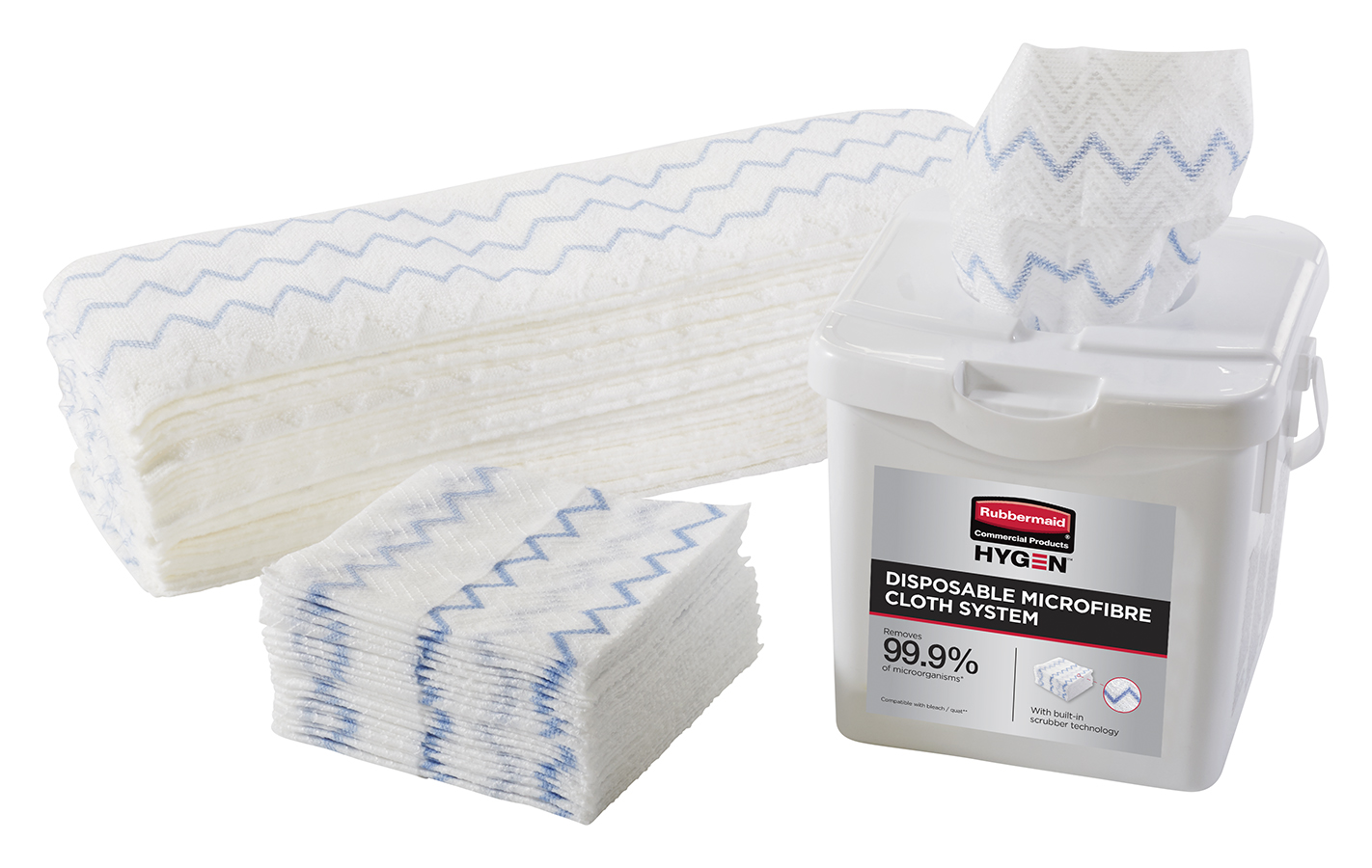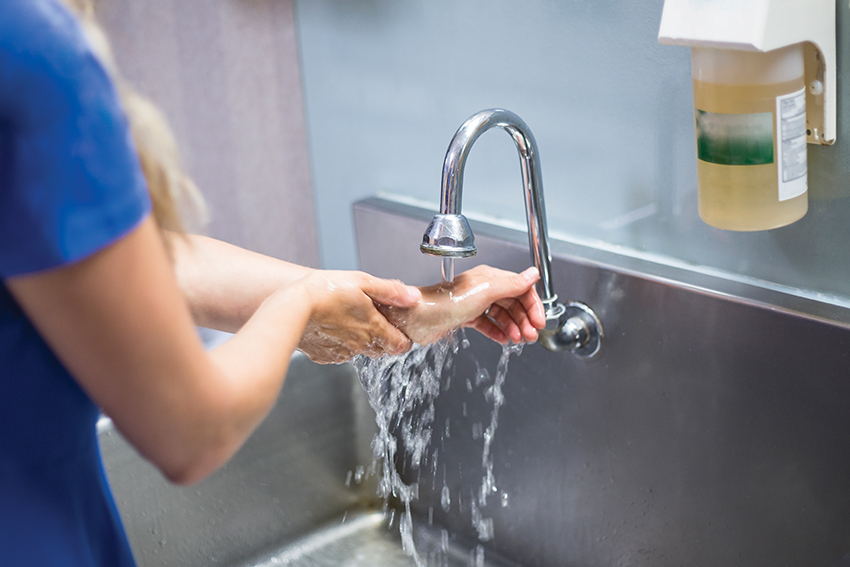
By Dr Lisa Ackerley, Director of Medical and Scientific Engagement, Hygiene, at Dettol Pro Solutions
It’s been over two years since Australia’s first border closures and nationwide lockdowns.
Since then, as a nation, we’ve emerged with a greater understanding of the importance of good hygiene and the role we all play in helping protect the community from the spread of germs.
As we return to daily commutes, hot desking, shared kitchens, sports games, concerts, hotel stays, travel across the country and beyond our borders, how much have our hygiene habits changed? Let’s look back.
Social impact, change, and the responsibility of businesses when it comes to hygiene
Since March 2020, there’s no denying that going about our lives outside the home looks different. QR check-ins are now commonplace, COVID-19 specific hygiene and cleaning protocols are advised by the government, proof of COVID-19 vaccination is required as a condition of entry to many places, social distancing is socially acceptable, and the use of masks are still required in a number of settings.
In line with these changes and the presence of COVID-19, research conducted overseas by Reckitt in March 2021, showed that 81 per cent of people surveyed agreed that since the pandemic, businesses need to put in additional protective measures to keep customers protected.
Fast forward to 2022 and for example, the New South Wales government has scrapped the requirement to wear masks indoors, removed the recommendation to work from home, abolished density limits and reduced the need for QR codes in many circumstances.
Despite these changes, latest research from Reckitt indicates 74 per cent of Australian consumers remain concerned about the spread of germs. When it comes to shared spaces, research indicates that 60 per cent of Australians believe public toilets, money, public transport and shopping trolleys are the most germ ridden locations.
As lockdowns and outbreaks have eased, and people have begun to head back out, the onus has moved from individuals protecting themselves at home, to businesses helping protect people in the community.
Despite the ebbs and flows of the pandemic’s first year and varied lockdown experiences across the nation, Australian consumer confidence in businesses grew 12.6 per cent between January 2020 and January 2021. On the flip side, Australian consumer confidence dropped six percent between January 2021 and January 2022.
What can we take from this?
Despite the yo-yoing of the last few years and unpredictability of what could come next, Australian businesses have played an important role in helping people feel confident to get back to living their lives BC (before SARS-CoV-2).
It’s imperative that these newly established societal norms and hygiene expectations are maintained.
Targeted hygiene: Research and rigour
The silver lining is the spotlight on the need to take a targeted approach to hygiene. Rooted in research and rigour, targeted hygiene refers to the practice of putting into place hygiene surface and hand hygiene interventions when and where they are most needed.
Based around risk management and efficacy, targeted hygiene focuses on what is needed to help stop the spread of germs, pointing businesses towards cleaning smarter, not just harder, and encouraging hand hygiene at key moments, rather than “frequently”. This approach is something we have been championing at Reckitt for years.
In Australia, awareness around the need for targeted cleaning and disinfection is now commonplace thanks to government advice which differentiates between less and more frequently touched surfaces and the different protocols used to tackle each.
Research has shown that high-touch points such as door handles, hangers, hand dryers and hooks can become contaminated by dirty hands, allowing germs to be transferred onto the hands of the next person to touch them.
It makes sense then for these items to be cleaned more frequently at intervals that reflect likely use of an area (obviously you don’t worry so much about areas where they are not being used) so you target the frequency accordingly.
Once you have developed targeted hygiene protocols, it is important to ensure that cleaning teams are trained so that they understand when, where and how to clean.
Monitoring is always part of any cleaning system to ensure spaces are not only being cleaned and disinfected in line with government health advice, but also so businesses can adapt their protocols based on footfall in the various spaces.
In addition, monitoring helps to understand where hand sanitiser is being used – does it need to be put somewhere more accessible, and whether messaging about hand washing is helping to get compliance, or does it need tweaking?
Hand hygiene and changing habits
According to Reckitt research from June 2021, 55 per cent of Australians said that they washed or sanitised their hands more frequently compared to a year ago.
Yet one in three (36 per cent) said the frequency of hand washing or sanitising remained the same with eight per cent declaring they were doing it less.
If there’s anything we can take away from this is that overall heightened awareness of hand hygiene among staff and customers should be something businesses should look to not just sustain, but actively encourage.
This can be done with signage to remind people to sanitise or wash hands with soap for at least 20 seconds at crucial times such as after using the bathroom, upon arrival at their destinations or in a shared space, or before eating.
Trust builds confidence
Businesses are beginning to acknowledge the need to follow science and risk-based protocols and are looking to brands not just for their expertise, but to share in their level of trust consumers place in them.
Not to toot our own horns, but studies have indicated that 68 per cent of Australians are more likely to be confident in the level of hygiene of a business if they use Dettol, which increases to 81 per cent amongst those who are ‘hygiene driven’ when making decisions to visit a business.
This is where a program like Dettol Pro Solutions can help businesses in need of hygiene expertise and who are looking to build confidence amongst their staff and patrons.
Looking to 2022, and beyond
Consumers and businesses need to be weary of letting their guard down and not letting our newly established hygiene habits fall by the wayside.
Despite differences – from Victoria’s crown as the world’s most lockdown city, to Western Australia’s iron curtain border which has only recently lifted, our newly found hygiene habits from the last two years are at risk if we don’t remain vigilant.
It is imperative that businesses and individuals work together to ensure hygiene remains an essential factor in how we work and play.
Keeping up good habits now, and in the future, is one of our strongest defences if we’re to avoid a repeat of the last two years.
And finally, remember that hygiene is not just for COVID – it can help stop the spread of a whole host of other germs.
This article first appeared in the May/June issue of INCLEAN magazine.
Read the original article here.
Comment below to have your say on this story.
If you have a news story or tip-off, get in touch at info@incleanmag.com.au
Sign up to INCLEAN’s newsletter.



